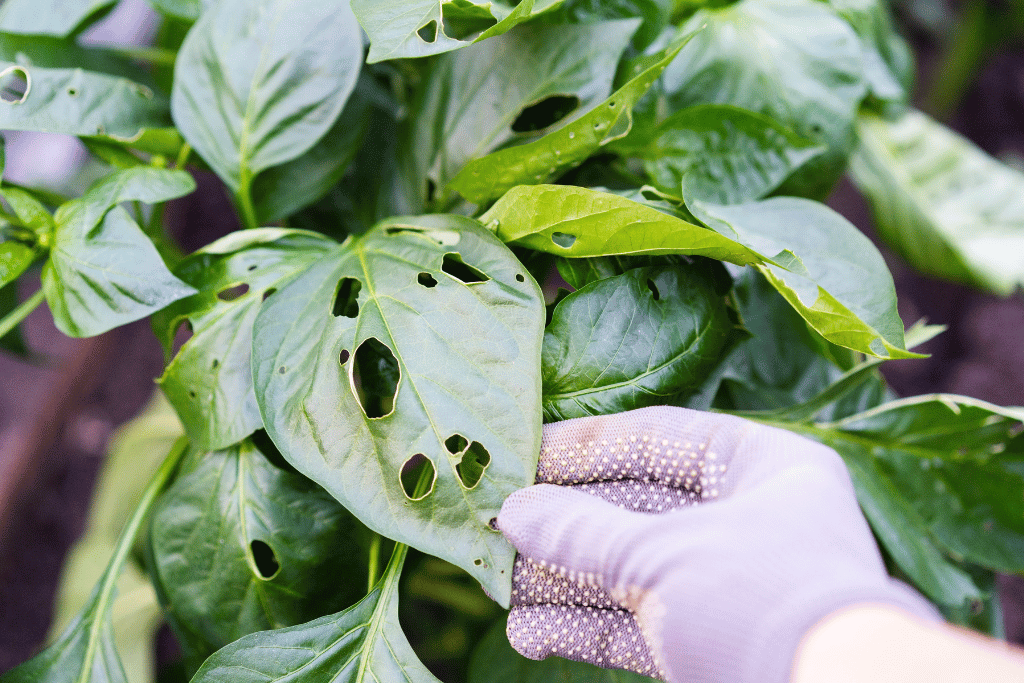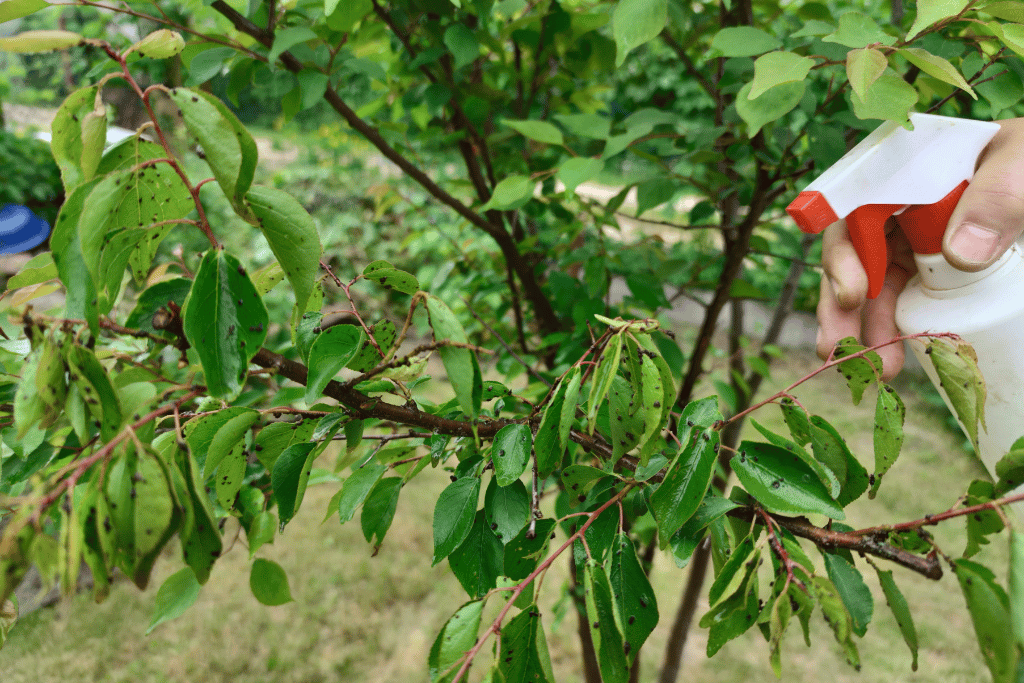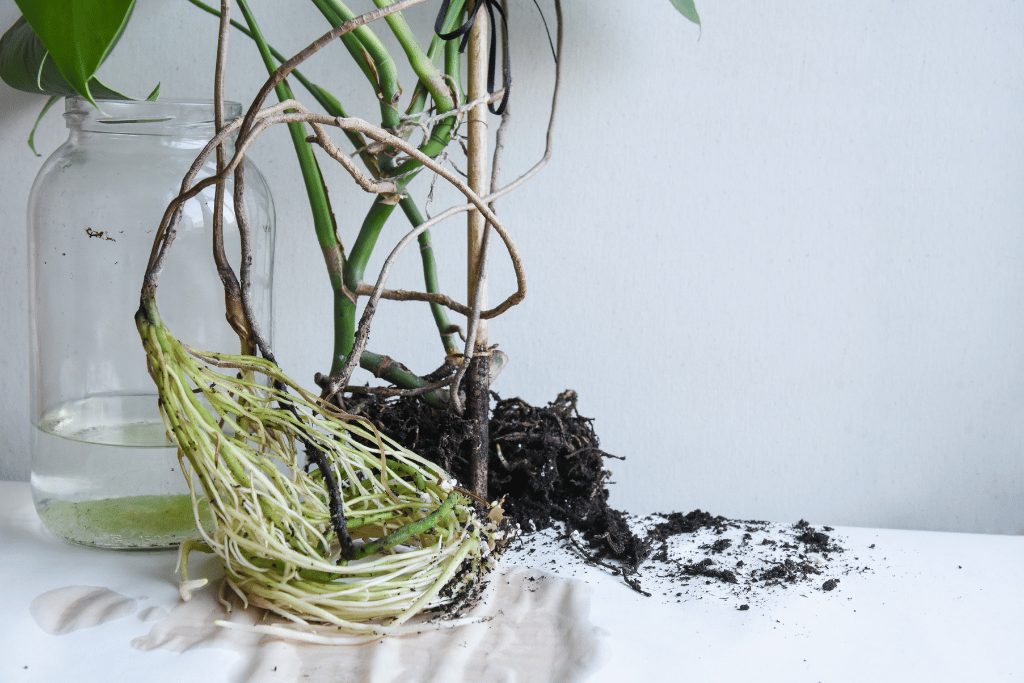
As summer approaches, the time has come to prepare your garden for lush vegetation. But before you start planting those delicious tomatoes, squash and other veggies, make sure to take one crucial step first: bug spraying! Unwanted bugs can quickly cause havoc in your garden by destroying plants or spreading diseases – so make sure to safeguard against any potential pest problems now!. Knowing how often to spray for bugs in the garden is essential for keeping it bug-free and producing a rich harvest.
Knowing the fundamentals of bug-spraying is essential for achieving optimal garden health throughout the growing season. This article will provide you with a comprehensive guide on how to correctly spray your lawn to eradicate pesky bugs and maintain a flourishing, vibrant garden!
So, let’s begin:
How do Bugs Damage a Garden?

Gardens are delightful to look at, yet can quickly be taken over by pests if left untreated. Bugs have the ability to destroy plants and veggies quickly, leaving behind nothing but barren soil. But how do these bugs actually damage gardens?
The chewing insects
Undoubtedly, the destruction of gardens is often caused by a variety of chewing insects such as beetles, caterpillars and aphids. Whether they leave behind holes or discolored spots on leaves and stems, these critters can swiftly wreak havoc in your garden if any plant appears to be fragile or sickly. It’s important to keep an eye out for these destructive invaders!
The sucking insects
Then there are sucking insects – scale, mealybugs, aphids, and more. Sap Sucking Insects (like aphids) can be especially detrimental to plants, feeding on their sap and hindering the leaves’ ability to absorb nourishment. Not only that, but they secrete a sticky substance called “honeydew” which attracts other insects and fungi capable of causing diseases in the plant. Protect your plants today by preventing these destructive pests from wreaking havoc!
The hidden pests
But it doesn’t just stop there. There are also “hidden” pests that you may not be able to see with the naked eye. These include nematodes, mites and webworms. Gardeners must remain mindful of the potentially devastating consequences from these itty bitty pests. Whether they attack stems underground or feed on plant roots, their presence can cause mass destruction if not identified and addressed on time. Taking preventive action is key to preserving your garden’s beauty and health!
How to Know if Your Garden is Bug-Infested?

Bugs tend to hide and come out only at night, while you’re sleeping! This doesn’t mean you have to stand guard and watch out for them. There are signs that can clue you in on whether or not your garden is infested:
Discolored or wilting plants –If your plants are showing signs of wilting or discoloration, it is likely they have been infested. Be sure to look out for white spots on the leaves as these could be eggs left by the bugs.
Excess dirt or soil on top of the soil in your garden – Wherever there is excessive dirt at the surface, chances are that bugs have been lurking around and enjoying their dark and moist habitat.
Small holes in plants or leaves – If you observe pin-sized holes in your plants’ stems, leaves and fruits, then it is probably caused by the bugs’ suckling and nibbling habits.
Strong, unpleasant odor – If you detect a pungent odor that was never there before, it could be the sign of an infestation in your garden.
Once you have identified signs of a possible infestation, it is important to determine how often to spray for bugs in the garden. Let’s discuss that below!
Make Your Garden Bug-Free Using a Spray

In order to keep your garden at its peak health, it is critical that you regularly spray for bugs. With the plethora of insects emerging from hiding and feasting on plants at various times throughout the day, timing your bug spraying correctly is essential for achieving results. Knowing when to apply insecticide will ensure a lush and pest-free garden!
The best time to apply lawn insecticide:
When tackling a pest problem, we must consider when to use insecticide for optimal results. To ensure that our efforts are not wasted, the best time to apply lawn insecticide is during either early morning or late evening hours. Cooler temperatures and lack of strong winds make it more likely that the bug-fighting substance will stay put on your grass instead of blowing away in gusts. Plus, dew drops from dawn provide added sticking power so you can rest assured knowing your effort was worthwhile!
When to apply insecticide to lawn:
It’s best to apply insecticide to your lawn when it is dry for best results. If you spray onto wet or damp grass, the product will likely not stick properly and become ineffective. Additionally, don’t use insecticides in excessive heat (above 85°F) or high humidity as this causes rapid evaporation of the item leading to decreased efficacy.
The best time of day to spray pesticides:
It’s more or less the same as spraying insecticides. The only difference is that you spray pesticides to prevent bugs from coming into your garden, while insecticides are usually used to kill them.
When it comes to spraying pesticide, the best time of day is again, early morning or late evening.
How often should i spray my plants for bugs:
The frequency of spraying your plants to keep bugs away greatly depends on the severity of bug infestations. As a precaution, it’s recommended that you spray your plants once a week for prevention purposes; however, if there is an extensive amount of pests present, more frequent application may be necessary. Be sure to read the instructions thoroughly before using any pesticide product in order to determine the optimal application rate and frequency.
When should I apply insecticide to my lawn:
To ensure the most effective treatment of an insect infestation, it is essential to apply insecticide as soon as you observe signs such as yellowing or wilting grass, tunnels in your lawn, and actual insects. Furthermore, correctly identifying the type of bug will help you select the appropriate insecticide that can target this specific species more effectively.
How long to wait after pesticide spray on vegetables:
If you’re using pesticides on vegetables, the amount of time before safe re-entry can vary depending on what kind of pesticide is used. Some products have a shorter Re-Entry Interval (REI) than others and could range from several hours to multiple days – so it’s essential to read through the product label and figure out that specific REI for your chosen pesticide. For optimal safety, make sure not to enter until after this interval has passed!
Furthermore, you’ll find a pre-harvest interval listed on the label of some pesticides. This time frame allows for any pesticide residue to dissipate prior to harvesting your vegetables and can vary from days up to several weeks depending on what is being treated. Strict adherence to this rule guarantees that the food you’re consuming is safe, so be sure not to miss out on this important detail!
Homemade Spray Recipes for Bugs in the Garden

Are you seeking a safe and budget-friendly way to protect your garden from intruding bugs? Homemade spray recipes are the perfect solution for you! These natural methods are simple to create, economical, and yet incredibly powerful in keeping those pesky critters away from your treasured plants. Here we will examine several concoctions that can help safeguard your garden today!
The garlic spray
Our first line of defense against pesky bugs is the garlic spray. Simply mix 2-3 cloves of minced garlic with a quart of water and a teaspoon of dish soap, then generously apply it to your plants – not only will it protect them from critters, but also give them an extra boost!
The hot pepper spray
If you’re a fan of spice, then your plants will be too! To create this powerful pest repellent, blend together one tablespoon of cayenne pepper or hot sauce with 1 quart of water and one teaspoon of dish soap. Give it some time to settle and strain out the liquid before applying directly to your garden. Not only is the taste sure to turn away those pesky critters, but they’ll stay far away from returning as well!
The citrus spray
This exhilarating spray is not only efficient in keeping bugs away, but it also leaves your garden smelling zesty and fresh! All you need to do for this delightful concoction is mix together a quart of water with the juice from one orange, one lemon, plus a teaspoon of dish soap and several drops of peppermint oil. Spray the solution on your plants -and voilà -the insects will disappear!
The beer spray
If you’re a beer-loving gardener, this is for you! Grab a can of your favorite brew and mix it with one quart of water and one tablespoon of dish soap. Let the concoction sit overnight so that the ingredients combine to form an all-natural bug repellent – just strain out the liquid before spraying it on your plants. Not only will they be pest free, but they’ll even get a hint of that cold beer aroma as well!
Conclusion
Keeping your garden pest-free through bug spraying requires a bit of finesse; the type of bugs, their life cycles, and what plants you are protecting from them will determine how often to spray. Typically speaking, it’s best practice to apply an insecticide every 1-2 weeks. Nevertheless, this schedule can be modified depending on the specifics of your situation.
Frequently Asked Questions (FAQ)
When to put insecticide on lawn if I have pets?
For those of us who are blessed with four-legged friends, it is wise to avoid applying insecticides on the lawn during peak hours (10am-2pm) when temps can reach their boiling point. Selecting a product meant for use in yards and spraying at dawn or dusk will help prevent your pet’s contact with the chemical while they’re out playing. Furthermore, keeping your pets off the grass until it has had adequate time to dry (24+ hrs) should provide added protection against exposure.
Are there any precautions I should take when applying insecticides?
When using pesticides, take all necessary precautions to ensure safety. Wear full protective clothing such as long garden sleeves, pants, goggles and a face mask; avoid spraying in windy conditions as it can cause drift; keep children and pets away from the area while spraying since they are more vulnerable to toxin exposure; read product label instructions thoroughly for proper storage and disposal of the pesticide. With these considerations in mind, you will be able to use pesticides safely with minimal risk of harm!
Why is morning or evening the best time of day to spray the yard for bugs?
Morning or evening is the best time because the temperature and humidity are lower than during the day. This makes it more effective as the product will be less likely to evaporate due to heat, increasing its efficiency.



